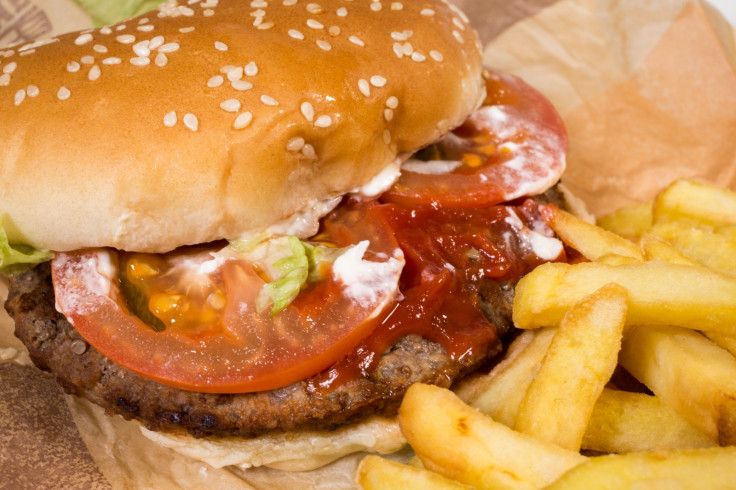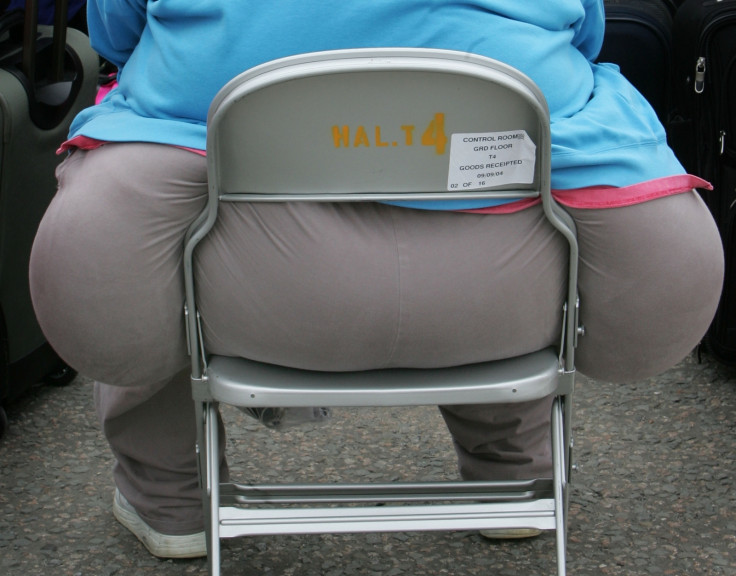Poor millennials will be the fattest generation – the march of progress is to blame

KEY POINTS
- The 10 worst areas in Britain in terms of overweight or obese children are also among the worst 10 for child poverty.
- This strikes me as an unusual sort of progress.
One thing that strikes you when reading the optimistic narrative of history is how societal problems like obesity are treated as a regrettable but inevitable by-product of prosperity.
In Homo Deus, Yuval Noah Harari writes that the average human in 2018 is "far more likely to die from bingeing at McDonald's than from drought". The voguish purveyor of optimism Steven Pinker similarly claims that while the "old stereotype of poverty was an emaciated pauper in rags... Today the poor are likely to be as overweight as their employers."
Put simply, we are growing fatter as a nation because we are getting wealthier as a nation. A projection by the Charity Cancer Research UK which claims that 70% of millennials – those born between the early 1980s and the mid-1990s – will be obese by the time they reach middle age appears to confirm this. We are presumably heading toward a world in which each of us is so big we will have to be hoisted into our clothes every morning.
Yet what you will notice about this sort of analysis is its essential shallowness. It looks at liberal capitalism like a man looking at a flower lolling in a vase: it is unable to see that the thing is already dead from the neck down. This is not to say that progress – albeit progress measured reductively by material prosperity – is an illusion. But the usefulness of a tendency that subsumes everything under the heading of 'progress' without burrowing into the detail strikes me as limited.
Obesity and life expectancy in Britain are a useful case in point. In January of this year, statistics from Public Health England showed that in many areas of Britain life expectancy is actually on a downward trajectory. Indeed, the average age of death in the most deprived parts of Britain has fallen by more than six months in the four years to 2016.
This contrasts with wealthier parts of the country where life expectancy has risen. Life expectancy in the United States meanwhile has fallen for the second year in a row, while 19 out of 28 European Union states have seen a fall in life expectancy since 2002, notably in the bloc's wealthiest nations.
Optimists will hold their hands up and declare that this is a mere blip, yet I suspect we ought to take such developments seriously. Not least because stalling life expectancy seems to be a consequence of poor people eating diets that are making them fat. Pace Pinker and Harari, the notion that obesity is a consequence of affluence is a rather perverse interpretation of the data.
Nearer to the truth on this is Martin Cohen, who notes in the Independent that the 10 worst areas in Britain in terms of overweight or obese children are also among the worst 10 for child poverty. Conversely, England's wealthiest council Richmond is one of the healthiest. For a variety of reasons, poor people are more likely to be overweight and die younger. In the past they were more likely to be malnourished and die younger. Plus ça change etc.

The thing that is striking about this is that it seems to occur in nearly every rich nation in the world. The most notable feature of any debate on the subject is that people invariably end up talking past one another. Noticeably, the notion that a one-dimensional narrative of progress might contain a few holes is treated as form of heresy by those who maintain that everything is straightforwardly getting better and better.
To cite an example: a country such as China, which has achieved a remarkable rate of material progress over the past 30 years, is often cited as a beacon of capitalist progress (despite its state-directed market economy, but let's ignore that). Yet if China were to double its GDP again over the next three decades - while in the process becoming even more authoritarian – only the most myopic of optimists would trumpet the country's untrammelled 'progress'.
Yet something comparable has happened to parts of the UK where stable jobs – jobs with at least a degree of democracy via the trade unions - have been replaced over recent decades by jobs based on short-term contracts and fear. Life in some respects has got worse in these areas, while life getting better for others has arguably just compounded the misery.
I put on a stone in weight working in an Amazon warehouse in the former colliery town of Rugeley in 2016, mainly for two reasons. Firstly, no one who works in those kinds of jobs is willing at the end of gruelling 10-and-a-half-hour shift to come home and boil up saucepans full of vegetables.
Regularity of dietary habit is simply incompatible with irregularity of work and income. But secondly, food – tasty food – gives a momentary morale boost amid a bleak emotional landscape.
People who have never set foot in that world can deliver all the sermons they like about the fecklessness or immorality of such behaviour. What's perhaps ironic is that this unwillingness to understand how human beings behave in practice should come from people who like to think of themselves as 'non-ideological'.
Of course, I wouldn't claim that obesity has a single identifiable cause; yet it is undoubtedly linked to an authoritarianism that prevails in certain spheres of life. In many parts of the country, people are even more at the whim of higher ups and outside forces than they were a generation ago. This strikes me as an unusual sort of progress.
© Copyright IBTimes 2025. All rights reserved.






















